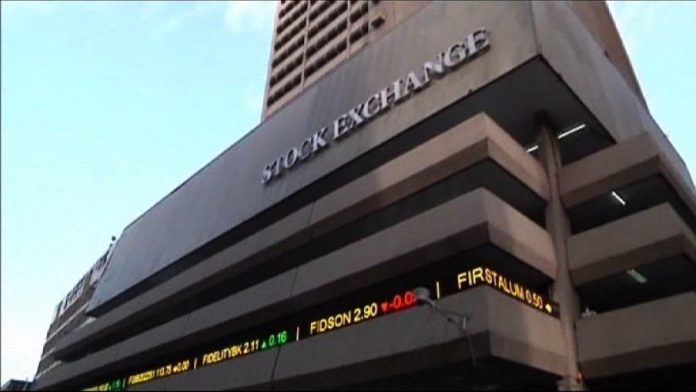The Capital Markets experienced significant expansion in 2023 with the All Share Index (ASI) increasing by 46 per cent, this is according to the state of the enterprise (SOE) 2024 report published by EnterpriseNGR, a member-led group fostering collective advocacy to develop Nigeria’s Financial & Professional Services (FPS) sector.
The report which highlighted the performance of Nigeria’s Financial and Professional Services Sector in 2023, noted that the sector showed strong growth.
SOE Report which is the first of its kind to provide detailed insights on all the sub-sectors of the FPS sector, comprising banking, Insurance, Capital Markets, Asset Management, Pensions, Non-interest Finance, FinTech, Professional Services (Legal Services, Accounting and Management Consulting), and Sustainable Finance, said the last time the capital markets achieved something close to its 2023 performance was in the wake of the pandemic in 2020.
It noted that the MaNigerianrket capitalisation jumped 47 per cent to about ₦41 trillion, facilitating substantial trading transactions and business activities.
It noted that Nigerian banks and other financial services accounted for 4.6 per cent of GDP which translates to financial institutions accounting for approximately ₦5 for every ₦100 generated nationally in 2023, up from about ₦4 in 2022.
According to the report, “The collective Deposit Money Banks had total assets of ₦121 trillion that are equivalent to half of the national gross domestic product.”
It said the banks also played significant supportive role in facilitating necessary funds to support businesses and the productive sector.
“The sub-sector’s role in tax revenue was equally commendable, ranking third out of the 23 economic sectors, in income tax and VAT generation to the government coffer.
“The Insurance sub-sector saw impressive momentum in 2023, with gross premium written reaching a ₦1 trillion mark.
“Even though this growth was driven by a regulatory intervention, such as increased motor insurance rates, the sub-sector paid 36 per cent more claims than in 2022, an indication that the Insurance sub-sector is rising to its responsibility to protect policyholders against adverse financial and economic consequences,” the report said.
Other sub-sectors surveyed that also showed impressive performance include, Asset Management sub-sector, which drives much of the activity in the markets.
The sub-sector, according to the report, is also laying the foundation for national future growth through collective investments. “The total net asset value (NAV) for all collective investment schemes soared by almost 50 per cent in 2023, and the number of registered mutual funds increased to 144 from 133 in 2022,” the report said, adding that this growth highlights the growing confidence in the markets.
The report said the Pensions sub-sector is one of Nigeria’s regulatory success stories, steadily building a secure future for millions of employees.
With over 10 million contributors, the sub-sector has accumulated over ₦18 trillion in investments, with 65 per cent of this invested in government securities. “By 2023, the sub-sector had paid over ₦400 billion in retirement benefits, and about ₦36 billion to contributors temporarily out of jobs, in 2023. “The Pensions sub-sector is not just a growing force in the economy, it is a safety net,” it noted.
It said the Non-interest Finance is broadening financial inclusion by providing access to many Nigerians who do not engage in traditional financial services. It said the sub-sector boasts a market size worth ₦2.5 trillion, growing by ₦1 trillion in a year. “Strong demand for ethical investments is driving numbers in the sub-sector. A key example is the issuance of a ₦150 billion sovereign sukuk in 2023, which was oversubscribed by more than 400 per cent. The sub-sector is aligning financial practices with ethical values to grow national investments.”
Other sub-sectors highlighted in the report include, Nigeria’s FinTech sub-sector is connecting millions of Nigerians to financial services, helping them meet their everyday needs at reduced costs compared to traditional banks. “Mobile money operators processed 140 per cent more transaction values, at about ₦46.6 trillion in 2023 compared to ₦19.4 trillion in 2022.
“Personal loans saw a significant rise of 19 per cent, increasing to ₦2.28 trillion from ₦1.92 trillion between the second and third quarters of 2023.


